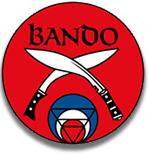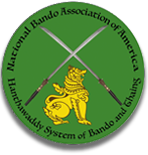Although Dr. Gyi’s father sought to eliminate unnecessary cultural artifacts from martial systems, he did not seek to have these systems exist in a moral or philosophical void. Elder Gyi discerned that martial systems inherently dealt with three types of conflict: conflict with others, conflict with nature, conflict with self. Today, most martial arts deal only with the first type of conflict, and in a very limited way (sport rules, etc.) These systems omit political and other solutions.
Bando has, historically, dealt with all three in a comprehensive fashion, realizing human limitations in each category. For example, in addition to the “conflict with others” issue, we must also realistically think of conflict with nature. How does our art help us in that regard? Most martial systems ignore the national or group levels of conflict. How would we deal with these? Bando in its richness considers this, too, but realizes the individual may have little immediate control over the final decision in such conflicts as whether or not a nation/tribe will engage in warfare. Thus, we seek to determine ways in which we can constructively function in that environment. Bando also seeks to study and understand and to properly function in a group conflict of smaller scale, such as family or extended family issues. All this was a part of the traditional Burmese systems which U Ba Than unearthed and systematized. Therefore, many families preserved these traditions as means of dealing with and surviving conflict. This survival tradition was deeply linked to family and group/tribe existence, so U Ba Than faced nearly insurmountable barriers in getting the older holders of this knowledge to share it. Nonetheless, he accomplished this after years of travel and effort.


